U.S. ethanol imports force out Canadian producers, domestic industry at risk: expert
Advertisement
Manitoba ethanol producers and experts are raising alarms that U.S. subsidized biofuel imports could push domestic biofuel production to the brink of collapse.
The province’s only ethanol plant, located in Minnedosa, 240 kilometres west of Steinbach, will no longer be profitable by 2034 and could face layoffs or potentially shut down, said senior plant manager Avi Bahl.
Owned by Calgary-based oil and gas firm Cenovus Energy, the Minnedosa Ethanol Plant produces more than 160 million litres of ethanol annually. But due to heavily subsidized U.S. ethanol being imported at cheaper prices and favoured by federal policies, he said his plant can’t compete.
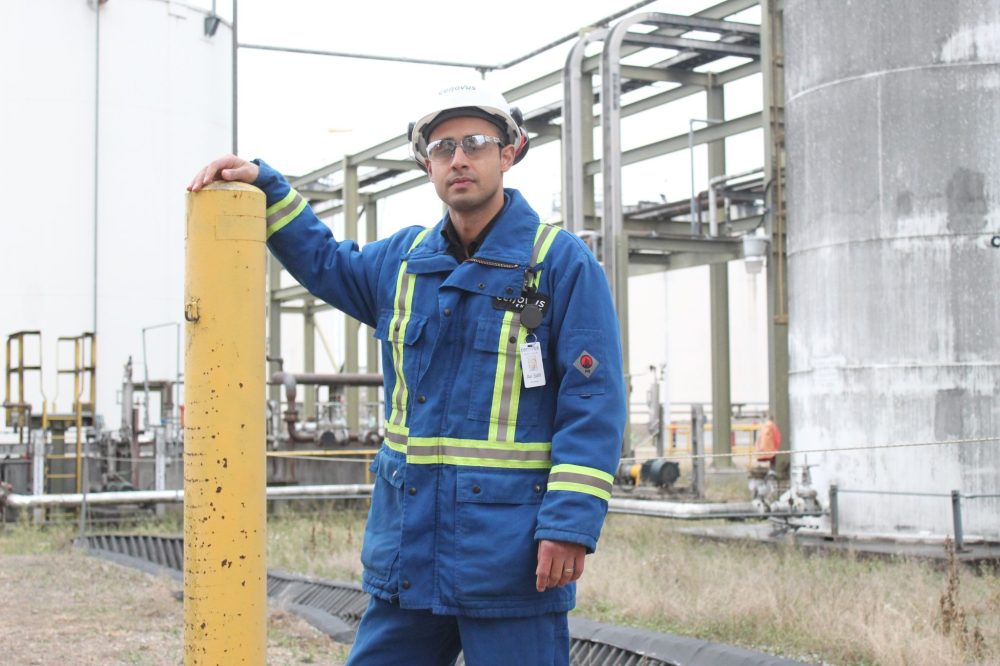
“We’re not looking for handouts, we just want a level playing field,” Bahl told The Carillon.
In September the federal government announced $370 million in measures to incentivize biofuel production, along with amendments to the Clean Fuel Regulation. However, no details were given on what the amendments are, and ethanol wasn’t included in the measures.
“I was so excited. I pull up my phone and thought ‘Oh, this is great,’” Bahl said. “Then we get more details a couple days later, and there’s nothing in there for ethanol.”
He said there’s no federal policy that differentiates his ethanol from what’s imported from the U.S. The only thing that separates ethanol is whoever has the lowest carbon intensity, Bahl said, and that person gets the premium price.
In 2024, Canada imported 60 percent of its ethanol supply from the U.S., according to the Biofuels in Canada 2025 annual report.
Since regulations in the U.S. allow for larger operations, pricing can be lower and more competitive with what he’s offering to buyers, he said. Bahl describes ethanol as a “marginal industry.”
“It has tiny margins. And then some years you make money, some years you lose money, and it flips back and forth. You’re always hovering around that,” he said.
If the 57-year-old plant shut down, Bahl said roughly 50 local jobs would be lost, grain farmers would lose a key buyer and Minnedosa would lose a revenue source.
Forty trucks deliver grain per day, five days a week, to sustain the plant’s ethanol production. Annually, the plant processes 385,000 tonnes of corn. Since opening in 2008, the plant has spent $1.2 billion on Manitoba grain.
He said the plant sources 85 percent of its corn from Southeastern Manitoba. Bahl would ramp production if he could, but since the province doesn’t produce enough corn domestically, he said the plant is forced to supply the rest from the U.S.
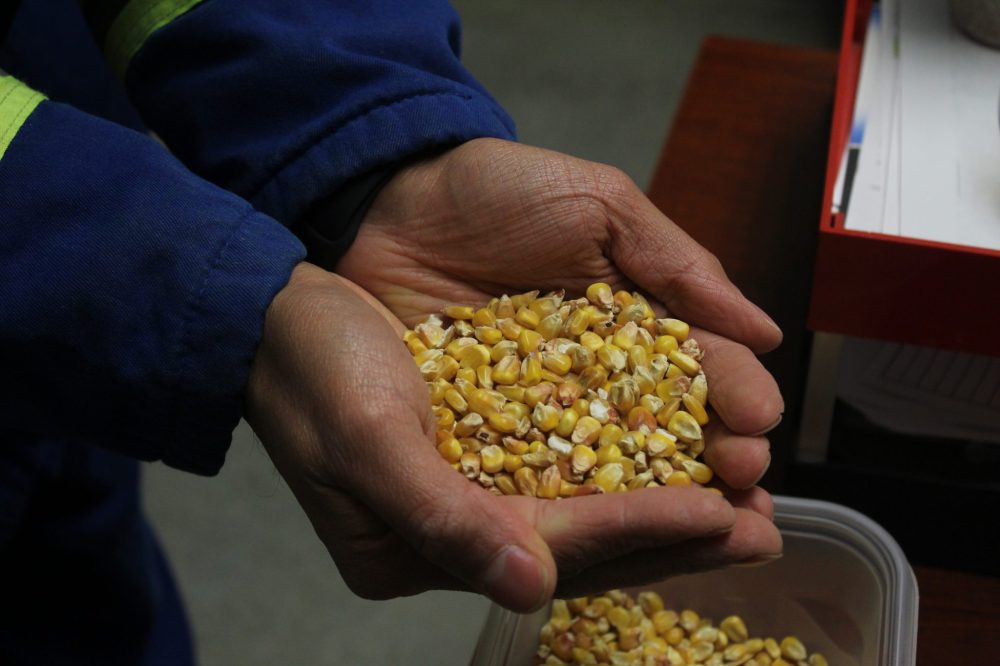
Manitoba produced 1.7-million tonnes of grain corn in 2024 and still had to import more than $429 million worth of corn from the U.S., according to the province’s agriculture department.
Not only is there not enough corn to supply his plant, Bahl said he has to compete against buyers who want the corn for silage and feed. The plant is also subject to industrial carbon taxes due to its need to operate a natural gas dryer for its unavoidable ethanol byproduct, dried distilled grain.
Bahl said the only reason the dry grain is needed is because feedlots are too far away to ship it wet because it would spoil faster.
“We can’t sell it wet because we don’t have a big enough feed lot close by. So now I have to truck it and it needs to go three to four hours away. Now you’re shipping mainly water,” he said.
Many of the U.S. ethanol plants are located near large livestock feedlots, which means they can ship the byproduct wet and ship more of it, removing the cost and the carbon emissions from needing a dryer, he said. Not needing a dryer gives American-made ethanol another competitive advantage when supplying Manitoba compared to what’s made domestically, he said.
““I’m stuck between a rock and a hard place,” Bahl said.
Under former Prime Minister Justin Trudeau, the federal government’s main environmental policy for fuel, the Clean Fuel Regulation, was established on June 21, 2022. It required the carbon intensity of fuel production, including ethanol, be reduced over time in exchange for compliance credits. The policy’s goal was to push producers to continually reduce their emissions and increase the amount of biofuels in their fuel mixes, regardless of where the biofuel originates.
Robert Parsons, a University of Manitoba supply management instructor, points to both the federal regulations and two American policies that accelerated U.S. exports to Canada.
With the subsidized American ethanol “flooding” Canadian markets, he said it’s a miracle that Manitoba’s plant has stayed afloat this long.
“What has happened under the Clean Fuel Regulations is U.S. ethanol is welcomed into Canada with literally open arms. And they (the federal government) give them (U.S. exporters) carte blanche on this,” he said.
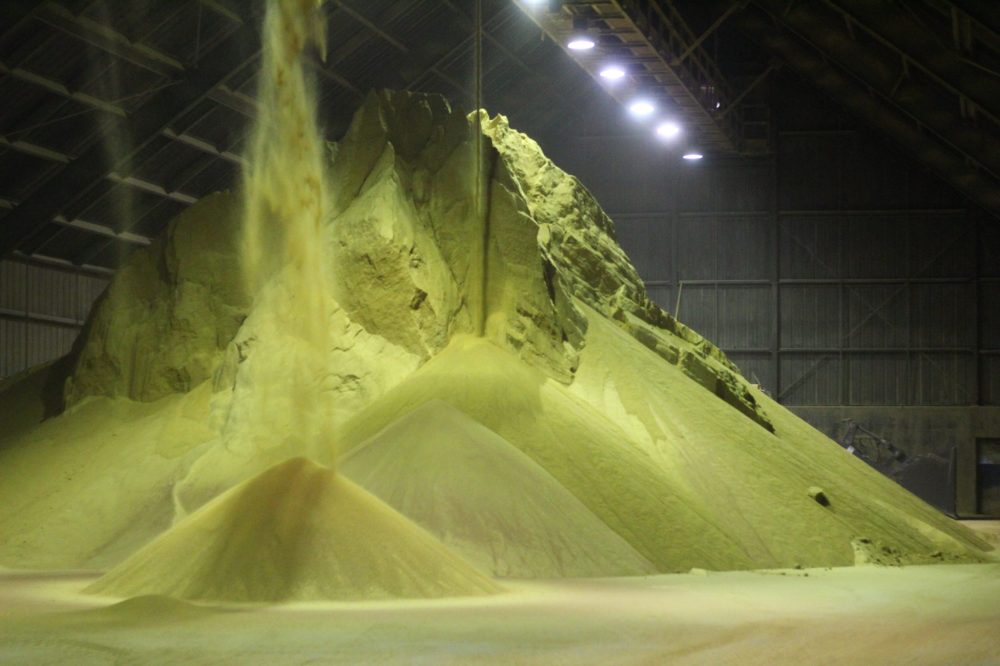
Former U.S. President Joe Biden signed the Inflation Reduction Act in August 2022 — two months after Canada’s regulations were created.
The act offered tax credits and grants for American ethanol and biofuel producers, allowing them to scale up production.
Those subsidies were further bolstered when President Donald Trump’s One Big Beautiful Bill Act was passed in July. It extended existing tax credits and removed land use emissions penalties for ethanol production.
Those tax credits add up to roughly 34 cents-per-litre CAD for American renewable biofuels, regardless if it stays in the U.S. or shipped abroad.
The combination of domestic regulations and the U.S. ethanol subsidies saw American imports explode.
U.S. ethanol exports to Canada hovered at roughly 1.2-billion litres annually from 2011 to 2021, according to the U.S. Energy Information Administration.
In 2022, exports jumped more than 50 percent to 1.9-billion litres. Those numbers continued trending upwards, with 2024 seeing a record 2.6-billion litres of American ethanol exported to Canada.
In August alone, Canada imported 255-million litres.
Nationally, Canada produced nearly 1.7-billion litres of ethanol in 2023, ranking it as the sixth largest global ethanol producer behind the U.S., Brazil and China, according to Statistics Canada.
Parson said U.S. ethanol gets a strong advantage because Canadian producers still have to pay the industrial carbon tax on emissions, known as the Output-Based Pricing System, and the Americans don’t.
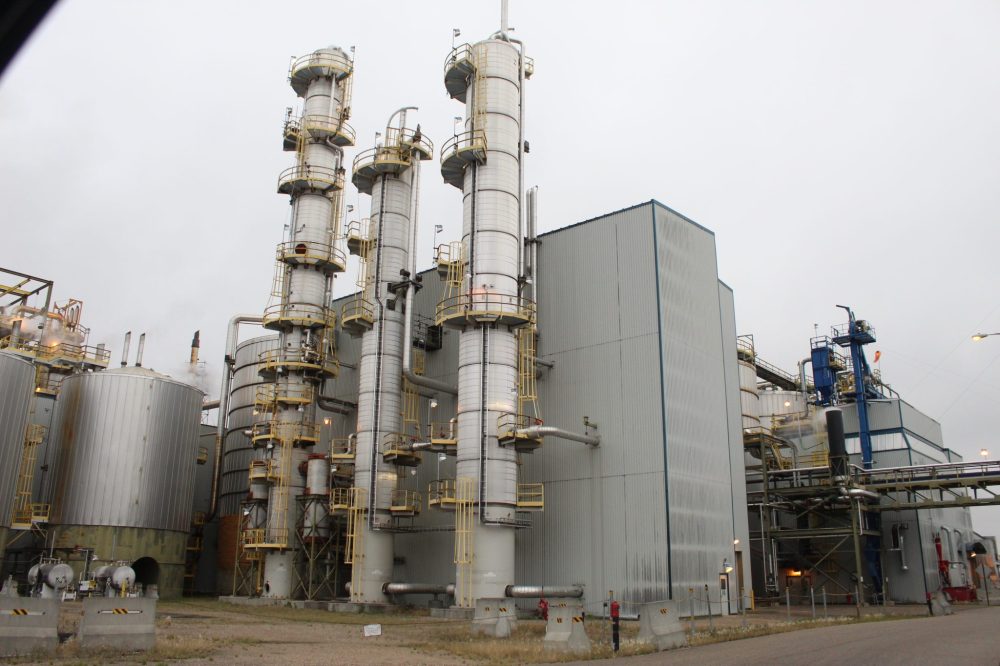
“Look at that 34-cent subsidy. How are people going to be able to compete with that,” he said. “It’s created almost an untenable situation.”
That cheaper, subsidized U.S. ethanol out-competing the domestically-produced alternative has built a reliance on American imports.
“I’m perfectly fine for the U.S. to build their own country and build their own ethanol. But if they’re using that to subsidize exports to us, and we are their biggest export location, well, that’s not good, and somebody is not thinking that through,” Parsons said.
He said the federal and provincial governments need to take action by removing the Clean Fuel Regulations, slashing the industrial carbon tax and banning U.S. ethanol imports, similar to how U.S. booze was ripped from Canadian retail shelves in March.
While it would be painful for Canadians because ethanol supply would drop, preserving the industry and domestic jobs is worth the price of not relying on the U.S., Parson said.
Both B.C. and Ontario governments have already put made-in-Canada requirements on ethanol use. B.C. announced in February the five percent renewable fuel requirement for gasoline must only use Canadian-produced renewable fuels.
Ontario announced its own on Aug. 8, mandating 64 percent of its renewable fuel for gasoline be made domestically.
Adrian Dix, B.C.‘s minister of energy and climate solutions, said at the time the measures were targeting U.S.-subsidized ethanol.
“By increasing the Canadian biofuel content in our transportation fuels, we will support local producers, protect jobs and reduce our dependence on foreign energy,” he said in a Feb. 27 statement.
The federal government could increase the amount of credits for domestic ethanol production, bringing it into parity with U.S. exports, Fred Ghatala, president of Advanced Biofuels Canada said.

He said the federal relief funding isn’t enough to support the biofuel industry.
“If there is not viable Canadian biofuel production, we worry about the long term viability of the clean fuel regulations,” he told The Carillon.
Manitoba requires 10 percent renewable fuels in gasoline and five percent renewables in diesel. Ghatala said the province has a “strong opportunity” to increase that requirement, which, combined with domestic protections, could spur growth for the local biofuel industry.
“Renewable fuels are a supply chain that connects Canadian farms to Canadian cities, and having that be a made in Canada supply chain is something that we can all be proud of,” he said.
Bahl said while the protection measures in B.C. and Ontario help stabilize producers there, he’s worried it will redirect the U.S. ethanol supply to provinces that don’t have similar measures, including Manitoba, and flood the market.
Canadian producers aren’t the only ones suffering from American ethanol imports. In August, one of the U.K.’s two ethanol plants shut down because it couldn’t compete with U.S. imported ethanol undercutting its prices.
That’s something Parsons fears will soon happen in Canada if there’s no change.
“If we do nothing, we’re going to lose this industry, period. That’s the stark choice that we have got,” he said. “American friends are not our friends.”
The Prime Minister Mark Carney-led government is too focused on big projects, said Parsons, while existing industries like ethanol production, are “eroding,” Parsons said.
Last month, Manitoba released its plan to reach net zero emissions by 2050. Part of that plan is to “develop renewable fuel strategies and support industry to set up production facilities” for biofuels.
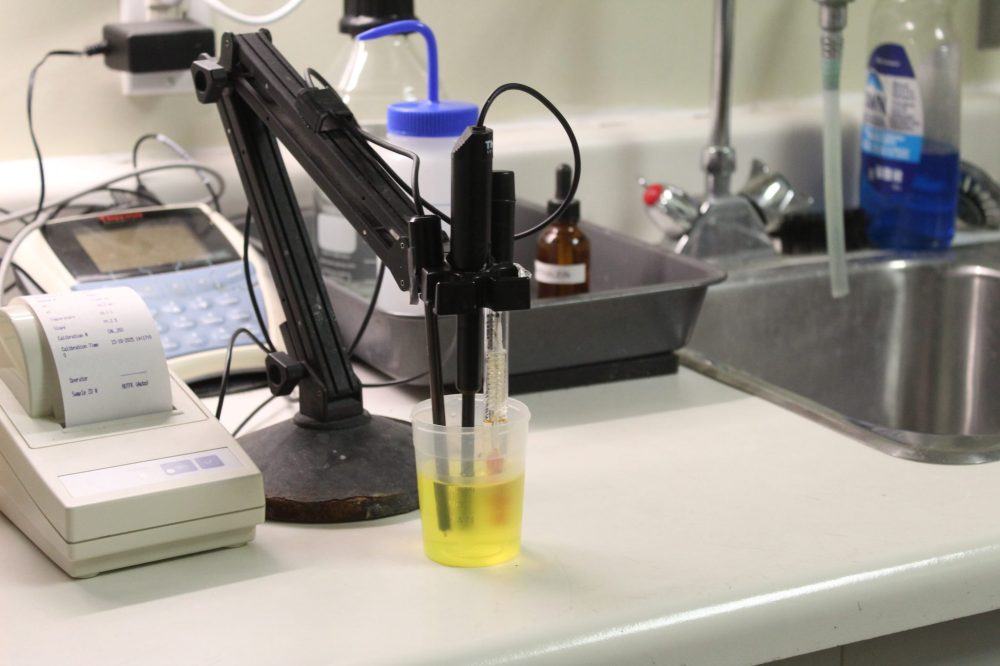
While Parsons sees the plan as a “noble idea,” he said it won’t work unless protections are put in place for domestic ethanol producers.
A provincial spokesperson said Manitoba will work with industries and stakeholders as the plan is implemented. The current provincial ethanol mandate helps reduce the reliance of petroleum and supports the Minnedosa plant, the spokesperson said in an email statement.
”These efforts will attract investment, create jobs, and position Manitoba as a clean energy leader on the path to net zero by 2050,” she said.
The spokesperson didn’t say what Manitoba will do to address the concerns of rising subsidized ethanol imports.
Federal Minister of Energy and Natural Resources of Canada Tim Hodgson didn’t respond to interview requests by deadline.
From whiskey to ethanol
Minnedosa’s plant got its start as a whiskey distillery in 1968, shipping its whiskey to the U.S. Costing $4 million at the time, the distillery owned by Canada’s Manitoba Distillery Limited was one of the province’s first distilleries.
It was opened with provincial fan-fair, as former Premier Walter Weir drove a forklift carrying the symbolic first barrel, according to a 1968 Manitoba press release.
The plant garnered international attention, with The New York Times publishing an article on the distillery’s announcement in 1960.

The distillery closed in 1973 and reopened as a ethanol fuel plant in 1981, ran by Husky Energy. Ownership transferred to Cenovus Energy when it bought out Husky Energy in 2020.
To take corn from feed to fuel, giant hammers grind the corn into a fine flour to prepare its starch for interacting with the water and the enzymes needed to ferment. The crushed grain is transferred to a cooker pipe, where 130 C temperatures cook the grain, now mixed with water and enzymes, under pressure for roughly 20 minutes.
From there, the grain slurry is piped over to the four fermenting units, which mix in yeast and hold the slurry for nearly 60 hours. As the yeast feeds on the corn’s sugar, it produces carbon dioxide that is released through the plant’s steam flumes.
When the yeast digests all of the sugar, it begins converting into alcohol, the basis for ethanol. The alcohol goes through distillation processes to remove excess water to raise its concentration level. To make it not drinkable, gas is added to the ethanol. From there, the fuel is ready for blending with the gas going into any vehicle’s fuel tank.
Bahl said the plant’s ethanol is trucked to Winnipeg, Regina or Edmonton, with up to 50 percent of its ethanol staying in Manitoba, to gas companies ready to mix the ethanol to meet provincial quotas.
After finishing an ethanol batch, the plant is left with two byproducts: fibre-filled mash from cooking the slurry, and the leftover corn oil. The mash is moved to a spinning dryer that removes the liquid.
Since Manitoba doesn’t have any biodiesel factories, it has to be shipped and sold elsewhere in Canada. The other product, known as dried distilled grain, is a high-protein animal feed trucked to farms across Manitoba and neighbouring provinces.
